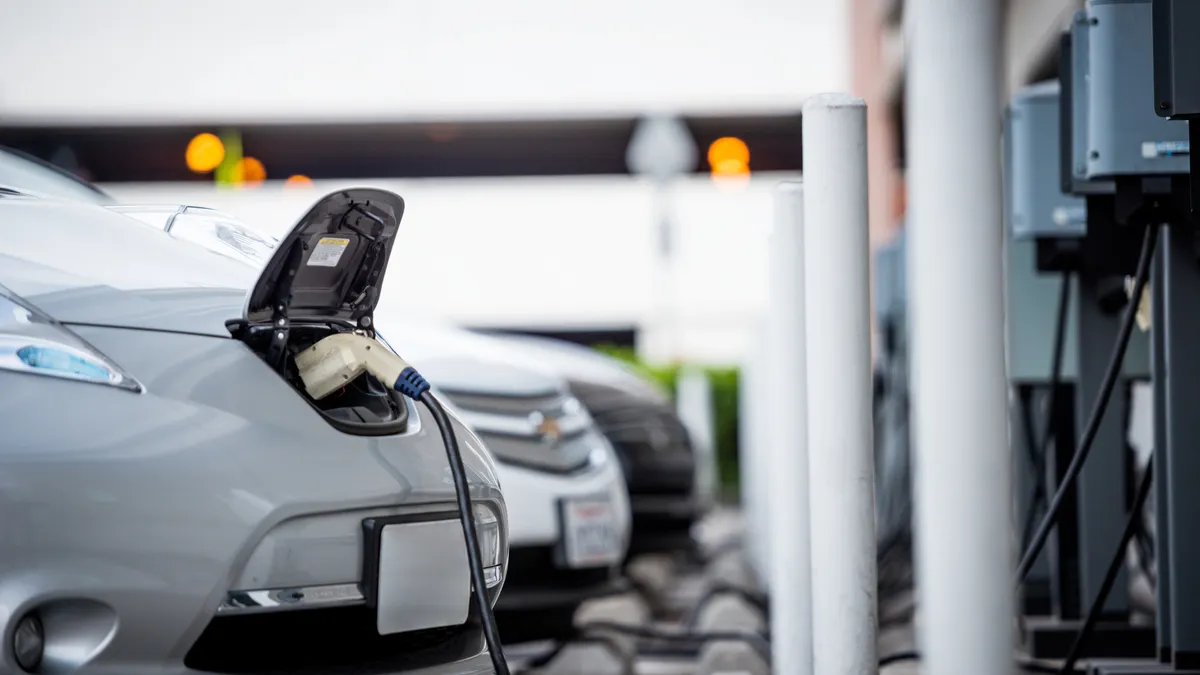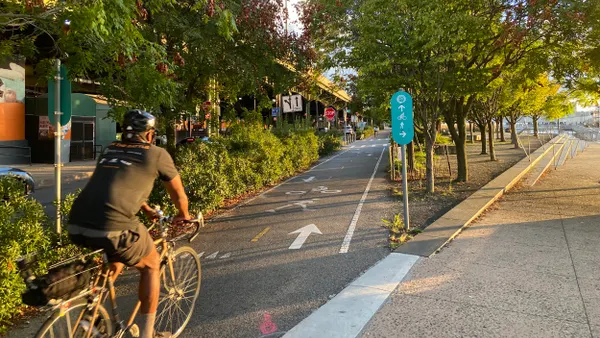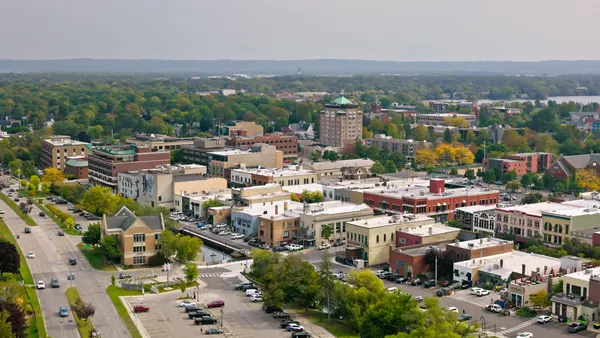Dive Brief:
- New Mexico regulators on Thursday approved El Paso Electric’s most recent 3-year transportation electrification plan, including $4,000 rebates for low-income customers to purchase an electric vehicle.
- The approximately $11 million plan also includes support for residential and commercial customers making the shift to EVs through smart charging programs and rebates for charging equipment. There is also a focus on ensuring new construction results in EV-ready homes.
- The New Mexico Public Regulation Commission voted 2-0 to approve the plan, with Commissioner James Ellison abstaining over concerns the EV purchase incentives, known as “on-the-hood rebates,” fall outside the scope of appropriate utility electrification efforts.
Dive Insight:
New Mexico passed rules last year to boost the number of EVs on its roads, and requires utilities to submit transportation electrification plans every three years that support its goals. But Ellison has consistently said utilities should not help customers buy new vehicles.
“It is my view that the focus of these transportation electrification programs should be on the infrastructure itself ... I really see these on-the-hood rebates as being outside of the scope of that core mandate,” he said at Thursday’s open meeting.
The PRC in February approved Public Service Co. of New Mexico’s transportation plan, which also included rebates for low-income customers. Ellison opposed that program as well.
El Paso Electric’s rebate program has a total budget of $200,000 and will be available to 50 customers. Ellison also noted that there are already significant incentives available in New Mexico for EV purchase: There is a federal EV tax credit of up to $7,500 for a new EV, and a new state EV tax credit of $3,000; both are “stackable” with the low-income credit.
“I just don't see the need to add this program on top of the federal and state programs,” he said.
Chair Patrick O’Connell responded that during deliberations over PNM’s plan, "I got to the realization that we have to have vehicles, to get the grid benefits.”
Commissioners noted that El Paso Electric did not propose the plan, but also did not object. The EV rebate was included after advocacy by the Southwest Energy Efficiency Project, or SWEEP, representing the Coalition for Clean and Affordable Energy, and Albuquerque-based nonprofit Prosperity Works.
If all cars and trucks in New Mexico were electrified, SWEEP estimates it would generate up to $50 billion in benefits through 2050, including savings from a more efficient electric grid.
There were about 800 light-duty EVs in El Paso Electric’s New Mexico service territory at the end of 2022, the utility said in its transportation plan, and more than a third of them were added that same year. And the utility anticipates there will be almost 3,200 EVs in the territory by the end of 2026.
“This recent rapid increase of light-duty EVs clearly shows an acceleration in EV adoption in EPE's service territory,” George Novela, the utility’s director of economic and rate research, said in filed testimony.
The point of sale discounts for electric vehicles “are precisely what limited income New Mexicans need to participate in the electric transportation revolution,” Ona Porter, founder and clean energy leader at Prosperity Works, said in a statement. “We cannot reach our climate goals without including everyone in the purchase and use of the technologies that improve collective wellbeing.”
“EV rebates for low-income New Mexicans will put more EVs on our roads,” said Cara Lynch, attorney for the Coalition for Clean and Affordable Energy and Prosperity Works. “The benefits to the electric grid take place only when EVs are driven. More than 60% of customers in EPE’s territory experience being low-income.”












